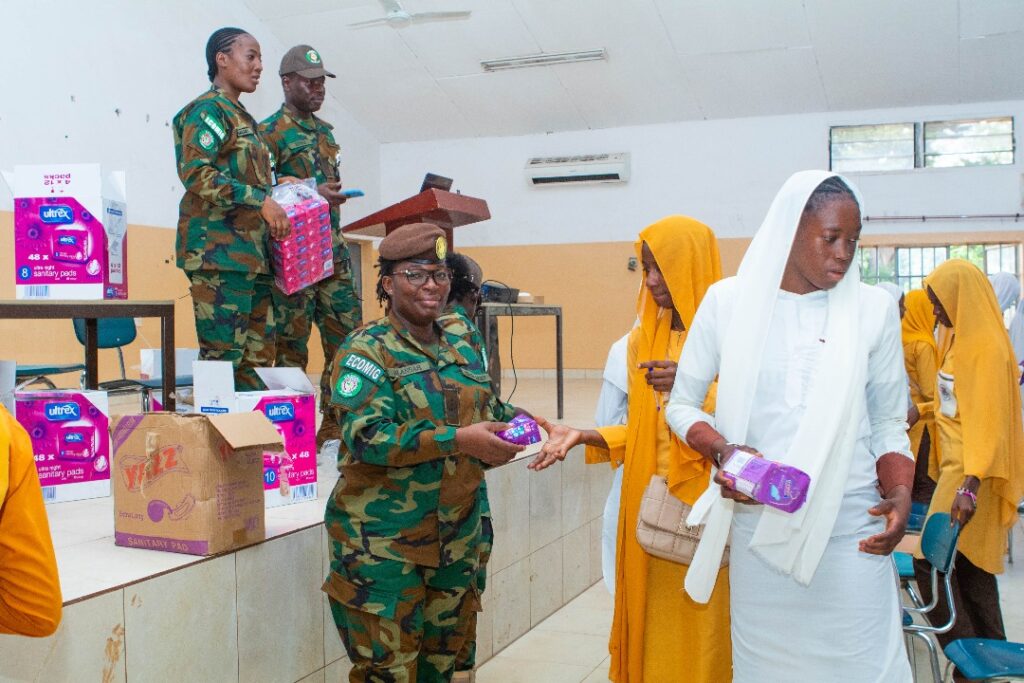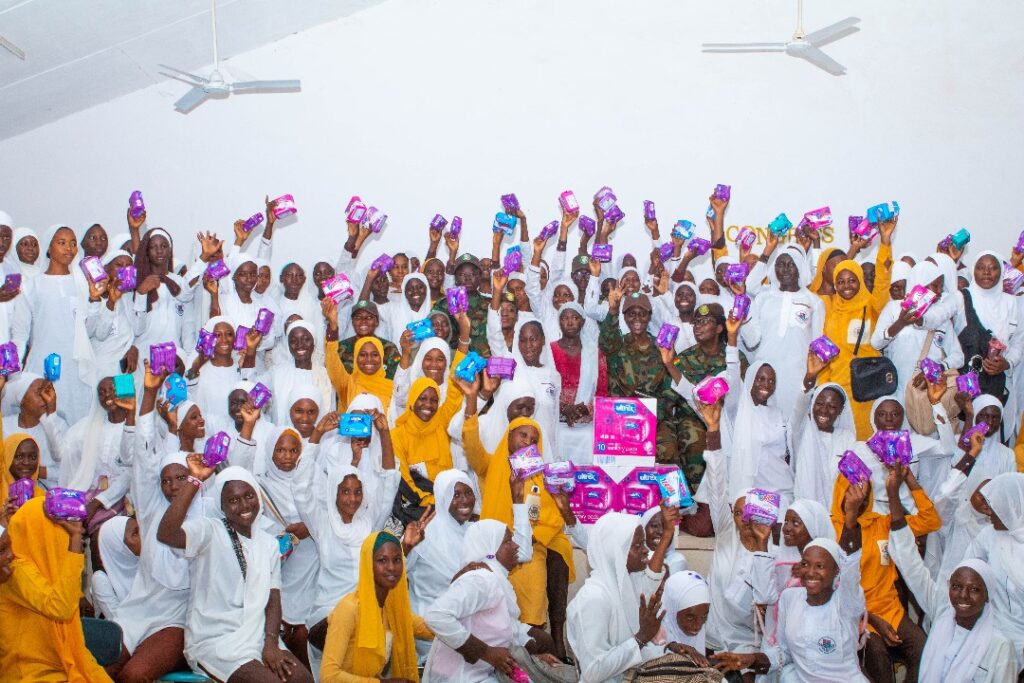Ghanaian Troops Bring Hope to Farafenni High School in the Gambia.
By Raymond Enoch
In the courtyard of Farafenni High School, a town tucked 115 kilometers from the Gambian coast, a different kind of mission unfolded — one without arms or armored vehicles, but with books, sanitary pads, and the quiet dignity of compassion. On July 31, 2025, soldiers from Ghana’s GHANCOY 9, deployed under the ECOWAS Mission in The Gambia (ECOMIG), swapped rifles for relief in a symbolic and impactful humanitarian operation that underscored the heart of regional peacekeeping.

The Ghanaian contingent, led by Lieutenant Colonel Ronne Yaw Agbemafle, donated essential school and health supplies to the students of Farafenni High School, with a sharp focus on improving girls’ access to education. Sanitary pads, pens, notebooks, and other basic necessities were handed over — not just as items, but as statements of care, unity, and solidarity.
But this was more than just a handout. In a bold move to confront a lingering social taboo, Captain Victoria Yayira Galley led an information session on menstrual hygiene, engaging dozens of students in a conversation often shrouded in silence. Her session aimed to demystify menstruation, empower young girls with knowledge, and help foster a school environment where periods are not a barrier to education.

“Peacekeeping today goes beyond the battlefield,” said Lt. Col. Agbemafle during the event. “It includes helping communities rebuild, heal, and thrive — especially the youth, who represent the future of The Gambia.”
The gesture did not go unnoticed. School authorities, led by the principal, expressed heartfelt gratitude, describing the initiative as “timely and deeply impactful,” especially in a region where economic hardships can turn everyday school materials into luxuries.
This initiative is a reflection of ECOMIG’s evolving mission profile — from military stabilization to community empowerment and engagement. Deployed since 2017 following a post-electoral crisis, ECOMIG has transitioned into a stabilizing force not only in the political sense but in the very fabric of Gambian society.
By supporting education, promoting menstrual health awareness, and connecting directly with local populations, the Ghanaian soldiers are writing a new chapter in what peacekeeping means in West Africa — one where helmets protect not only from conflict, but from inequality, ignorance, and isolation.
Farafenni may be far from Accra or Banjul, but on this day, it stood as a beacon of what collaboration, compassion, and commitment can achieve under the ECOWAS flag.









